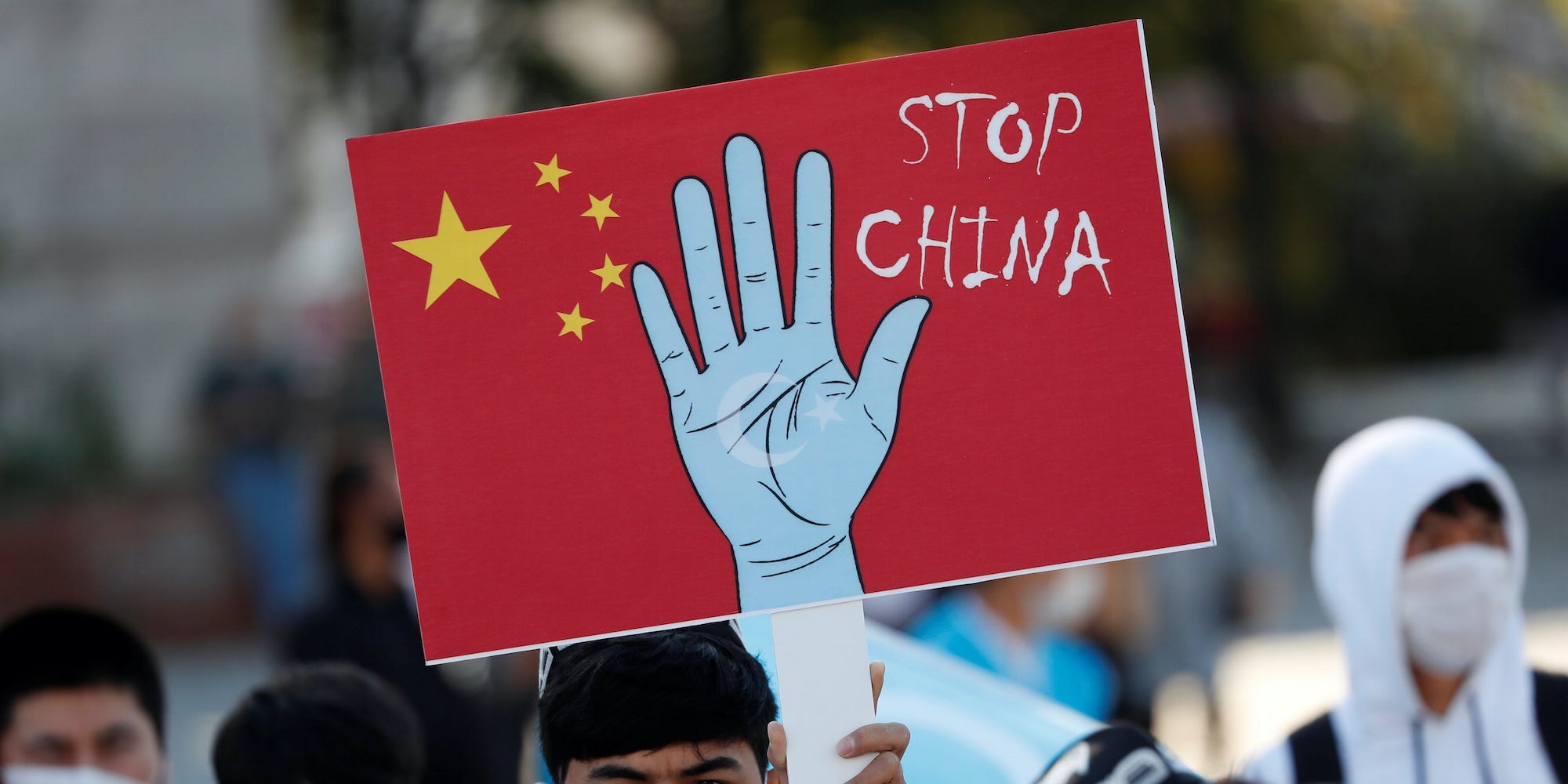
Murad Sezer/Reuters
- At least 570,000 people in Uighur regions were sent to pick cotton through China’s coercive labor training in 2018, a new Center for Global Policy report found.
- The report comes as activists in the US lobby congress to pass the Uyghur Forced Labor Prevention Act.
- The Act which was introduced earlier this year would force companies to make sure they are not sourcing products from the Xinjiang region.
- Visit Insider’s homepage for more stories.
At least 570,000 people belonging to ethnic minority groups in Uighur regions were sent to pick cotton through China’s coercive labor training in 2018, a new Center for Global Policy report found.
“Xinjiang’s total labor transfer of ethnic minorities into cotton-picking likely exceeds that figure by several hundred thousand,” the report said.
Human rights activists have been lobbying President Donald Trump to ban Chinese cotton over Xinjiang forced labor camps.
Earlier this month, the Trump administration banned cotton imports from the Xinjiang Production and Construction Corps (XPCC), one of China’s largest cotton producers, Reuters reported.
However, activists have put pressure on Congress to pass the Uyghur Forced Labor Prevention Act.
That bill, which was introduced earlier this year says that companies would be required to make sure they are not sourcing products from the Xinjiang region. Reports have found that Uighurs, a Muslim-minority group, and other ethnic minorities in the region are forced to work in detention centers under hostile circumstances for little to no pay.
In recent years, the Chinese Communist Party has constructed hundreds of prisons and detention centers in Xinjiang and the surrounding region.
Reports from the camps allege the forced consumption of forbidden foods in Islam, mass surveillance, and various other forms of psychological and physical torture.
Chinese officials have repeatedly denied human rights abuses and claimed the camps are vocational training camps meant to quell extremism.
They've additionally claimed that factories, where detained Uighurs and other ethnic minorities worked, were part of a poverty alleviation scheme, where participants voluntarily join.
The CGP report found that beyond being forced to make textiles with cotton, ethnic minorities were also being used to hand-pick the cotton, an arduous task.
"Despite increased mechanization, cotton picking in Xinjiang continues to rely strongly on manual labor," the report said, adding that last year around 70% of the cotton in the region was hand-picked.
The region produces 20% of the world's and 85% of China's cotton.
The new report found that for the two-to-three month cotton-picking period, China has relied on detained Uighurs and other ethnic minorities so they could reduce the need for outside Han Chinese migrant laborers. Additionally, the practice of cotton picking is hard labor, and usually requires pickers to be closely watched and surveilled.
The report added: "the majority of Xinjiang's cotton is produced in regions with comparatively low levels of mechanized harvesting. This, together with pressures to reduce production costs, incentivizes the systematic deployment of low-paid ethnic minority workers."
Dit artikel is oorspronkelijk verschenen op z24.nl

